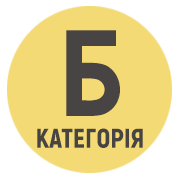ECONOMIC ACTIVITY OF THE LVIV DOMINICAN MONASTERY IN THE LAST THIRD OF THE EIGHTEENTH CENTURY
DOI:
https://doi.org/10.32782/cusu-hist-2024-2-9Keywords:
property, land tenure, Josephinian Reforms, monasteries, Dominican Order, products, grain farming, animal husbandry, tradeAbstract
The article examines the economic activities of the Lviv Dominican monastery in the context of the Josephinian Reforms, which were intended to establish state control over the material resources of spiritual owners and limit the traditional rights of the Catholic Church. Authors analyze the process of formation of the monastery’s land property and property acquired by the Order from secular persons through bequest, gifts, and its own acquisitions. The Austrian authorities’ legislative activity in regulating monastic representatives’ activities in the Crown land of Galicia and Lodomeria is examined. On the basis of inventory records and the Josephine metric’s data, the main branches of the economy of the Lviv Dominican monastery are studied. It is noted that land tenure structure complied with the feudal property type, according to which the bulk of arable land, vegetable gardens and meadows were transferred to the use of peasants, and the owners posessed forests and the best yielding land. Dominias and Dominican villages located in the vicinity of Lviv had fertile soils and a compact location, which favoured the development of arable farming and animal husbandry. Grain farming on the farmsteads was provided with sufficient inventory, convenient storage and processing facilities. The availability of large pastures, waste from the processing of raw materials in breweries and distilleries, as well as peasants’ tribute, served as the basis for increasing the number of livestock, which guaranteed the owner food and supply of goods to the market. In the last third of the 18th century, the Order’s economy was involved in trade and business activities on a regular basis. The Dominicans traded in agricultural and livestock products, and alcoholic beverages. It is noted that during this period, the Lviv Dominican monastery tended to increase livestock production specifically for sale. The production and sale of alcoholic beverages were exclusively market-oriented. Alcoholic beverages were sold through a system of numerous taverns in every village. The reforms of the Austrian state, which restricted the rights of owners to use banal rights and other feudal prerogatives, stimulated the development of monastery’s own economy and its inclusion in the mechanism of market relations that was being actively formed.
References
Вечерський В. В., 2008. Українські монастирі. Київ: Наш час.
Гуменяк А., 2016. Основні аспекти церковно-релігійного життя Домініканського ордену Східної Галичини в другій половині ХІХ – 30-і роки ХХ століть. Часопис української історії. Випуск 33. Київ. 33–40.
Лоштин Н., 2014. Діяльність домініканських місій в Галичині та на Поділлі (XIII – перша половина XV ст.). Rocznik Lubelski. Tom XL. 9–14.
Пономаренко Л. В., 2010. Торгово-підприємницька діяльність великих церковних власників Галичини в останній третині XVIII століття. Наукові записки Кіровоградського державного педагогічного університету. Серія «Історичні науки». Кіровоград. 108–121.
Урсу Н. О., 2007. Мистецька спадщина домініканського ордену XVII–XIX ст. на території України. Кам’янець-Подільський: Абетка.
Чорний М. І., 2009. Формування земельної власності домініканських монастирів Галичини у ХІІІ – першій половині ХV ст. Гуржіївські історичні читання. Вип. 3. Черкаси. 259–263.
Чорний М., 2014 (a). Домініканський орден в державах Центрально-Східної Європи у XIII – першій половині XIV ст. Модест Чорний. Вибрані праці. Львів. 11–128.
Чорний М., 2014 (b). Австрійська секуляризаційна реформа у Львові: міфи і реалії. Модест Чорний. Вибрані праці. Львів. 159–173.
Rychlikowa I., 1957. Realzacja spoleczno-gospodarzych reform Terezjansko-Jozefinskich w Galicji. Roczh. dziejow. spol. i gospod. T. XIX. 91–134.
Tokasz W., 1909. Galicja w poczatkach ery Josefinskiej w switle ankiety urzedowej w roku 1783. Krakow.
Jaworski H., 1905. Stosunki ekonmiczne Galicyi pod panowaniem Austryi. Lwow.








